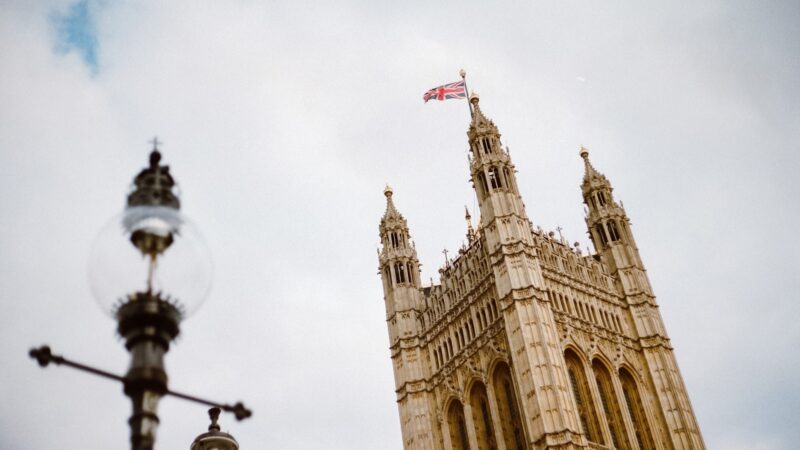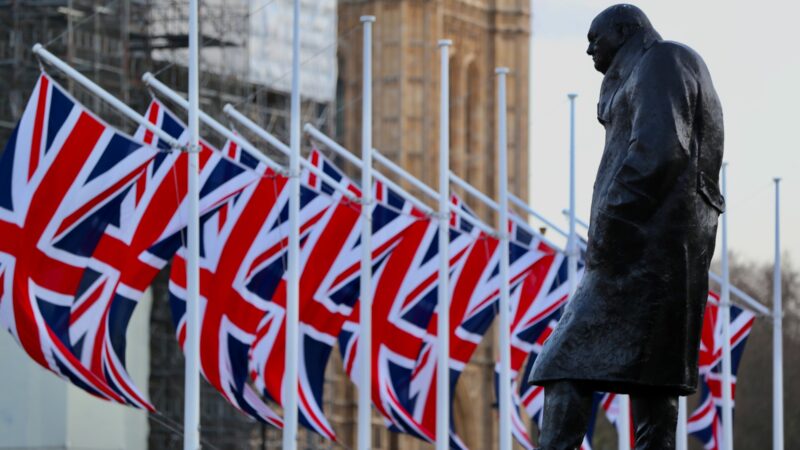Britain needs a Flat Tax
The concept of progressive taxation, once lauded as a pillar of leftist ideology, aimed to embody progressiveness by imposing a heavier tax burden on the wealthy. It was envisioned as a means to uphold public services, with the wealthiest individuals leading the chariot, paying heinous tax rates of up to 45%.
However, this philosophy ignores a critical flaw. As the belief that only the affluent bear this burden is far from reality, as shockingly, a staggering 32.32% of the tax-paying population find themselves trapped in higher tax brackets, far beyond a mere trickle.
With a significant 53.1% of the UK’s tax revenue directly fuelled from just 32.32% of the tax-paying population – or in other words, a mere 18.1% of the UK’s total population -, it becomes clear that we have overlooked the potential to invigorate our financial system, through putting more money in the hands of the people. By doing so, we could meet the demands of the free market and stimulate economic growth, something which UK markets have so greatly been missing out on.
While decreasing the top rates of tax may seem delusional given the economic situation and current governmental regime, there remains a possibility worth exploring—a flat tax system. In a society where absolute fairness is demanded, regardless of common sense, one must question why society would reject such a concept. A flat tax is undeniably the fairest and most equal method of taxation, aligning with the very meaning of the word ‘fair’:
“fair, just, equitable, impartial, unbiased, dispassionate, objective mean free from favor toward either or any side. fair implies a proper balance of conflicting interests. a fair decision. just implies an exact following of a standard of what is right and proper.” [Definition of the word ‘fair’ [Merriam-Webster, 2023]
Therefore I ask, why not give a flat tax a chance? It treats everyone equally, regardless of socioeconomic background, offering an undeniable sense of absolute fairness. However, doubts arise when considering its feasibility, more particularly its success within the UK. While some countries, such as Russia and Ukraine, have implemented a flat tax providing positive outcomes, it is essential to acknowledge that the UK’s financial sector could potentially be destabilized by such a system. The financial sector not only sustains thousands of jobs but also serves as the lifeblood of the nation’s capital. Nonetheless, this does not mean that a flat tax is impossible for the UK.
Russia’s flat tax rate of 13%, introduced in 2001, led to an increase in tax revenue, alongside improvements in overall tax compliance and efficiency, supported by OECD. This simplification of the tax system was hailed as a significant success, considering the many complex loopholes which existed before its introduction.
Regrettably so, implementing a 13% tax rate across the UK would not be so easy, especially with the UK public’s insistence on retaining the NHS; therefore, I would propose a higher rate, potentially around 20%, tooling HM Treasury to strike a balance between taxation and state spending.
Through adopting this alternative approach, we would aim to solidify the medium in-between sustaining key public services and ensuring maximum disposable income, which after all, would be better reinvested throughout the UK’s markets, taking away a degree of power from the state. Through this, the basic tax rate would also remain the same (at 20%), effectively eliminating the higher tax bands of 40% and 45%.
The math behind this proposal makes sense, as a flat tax rate of 20% would lead to a decrease of approximately £49 billion in tax revenue compared to our current progressive system, representing a decrease of only 6.26%.
While losing out on £49 billion may seem significant, it would position the UK as one of the most attractive nations for wealthy investors, providing a clear economic incentive as compared to other competing nations. Fostering and enabling a true post-Brexit economic plan, which would provide the investment the UK so desperately needs.
To put this into perspective, HS2 is set to cost between £72-£98 billion, whilst yearly funding for the NHS costs £160 billion; this further solidifies the point that £49 billion is a figure which the government could work with, an amount which would allow the UK economy to grow out of stagnation and thus establish an empire of investment, indeed signalling to the world that we are ‘actually’ open for business.
As Friedman argued and I alike, we should focus first on economic restoration, above all else, and what better way to do so than restimulate our markets with more disposable income to spend across the nation.
Enjoying The Mallard? Consider subscribing to our monthly magazine.









The Wire and Singapore
The small island nation of Singapore is like the American TV program, The Wire. I understand that is probably one of the weirdest opening sentences to an article about philosophy and global politics, but hear me out.
Co-creator of The Wire, David Simon, once stated the reason for the show’s success was its ability to mirror every conceivable political bias of the viewership. This was enabled by the many different themes and issues exhibited throughout the show. If you are against the War on Drugs, you will see evidence of its failings. If you support it, you will see evidence it should continue. If you believe that police failings are because of cultural or economic reasons, you will see those perspectives reflected too.
In short, within the entire series, you will see nearly every modern political issue at play as understood by every ‘side’ of said issue. What remains interesting is that, as noted by Simon, the show maintains an ability to “validate” and consequently reinforce the beliefs of the viewers.
As such, the city of Baltimore continues to hold a light to America-at-large and its ongoing issues, even if it aired 21 years ago, finishing just before the election of Barack Obama in 2008. Whether it’s urban decay, corruption, or the failure of the American Dream, what we see in the show are things that existed in the 1960’s and still exist today in this post-industrial broken city.
You can follow this train of thought into the world of global politics, which is not as far away from modern media as I would like to admit. Specifically, we have seen a similar situation emerge out of the success story that is Singapore.
Singapore is like a mirror to any political persuasion that one might have, from which also can “validate” one’s own personal politics. The only real difference is that The Wire (and by extension the city of Baltimore, I say this because the city itself is largely the main character for the entire show) are used negatively, while Singapore is used positively.
If you want to see a thriving multi-ethnic, multicultural, post-colonial state, then you can look to Singapore. If you want to see somewhere that champions free-market capitalism, then you can see it there. If you want to see somewhere with a right-wing government that places a strong emphasis on law and order, not to mention the death penalty, it’s right there between Johor and the Riau Islands.
It remains fascinating to me that a tiny island, one which most people could never find on a map, has sparked such a massive debate on what they ‘see’ when they think of Singapore.
A nation with a population comparable to Lebanon or Palestine, yet more than a hundred leagues above such countries. A right-wing free-market paradise with the best public housing in the world. Those who see its publicly-funded universal healthcare system, one of the most efficient in the world, argue to the contrary. A super politically conservative nation that’s current president is an ethnic minority Muslim woman, racial success story, model minority, etc, etc.
Is Singapore perfect? Of course not. Is Singapore used to reflect general political beliefs about the world? Well, yes. Are a lot of these views correct? Yes and no.
Politically, socially, economically, a lot of different political views and philosophies are validated by the existence of Singapore. Fundamentally, Singapore and Baltimore have a comparable effect on the politically-minded.
Do people get murdered and addicted to drugs in both places? Yes. Are both places being led by an ethnic minority leader? Yes. How we view subjects often depends on the viewer itself, as much as the subject matter in play.
Despite this, Singapore has become a symbol of success whilst Baltimore has become a symbol of failure. Singapore is a model whilst Baltimore is a failure, and nobody wants to see their political beliefs reflected or “invalidated” by the latter.
What is revealing is how two completely different places are so similar, while being so completely poles apart. Everyone can infer whatever they want from either place or still be generally, albeit not exactly, correct.
In conclusion, I think that David Simon is largely correct about this idea of how we as viewers of a thing can be so vastly different, yet so widely validated by its existence. Maybe, it’s more revealing for us, as viewers, to look at places or thematic issues within the greater context of The Discourse, whether political or pop culture, and realize we can all be somewhat right, while also being largely wrong.
Enjoying The Mallard? Consider subscribing to our monthly magazine.
Photo Credit.